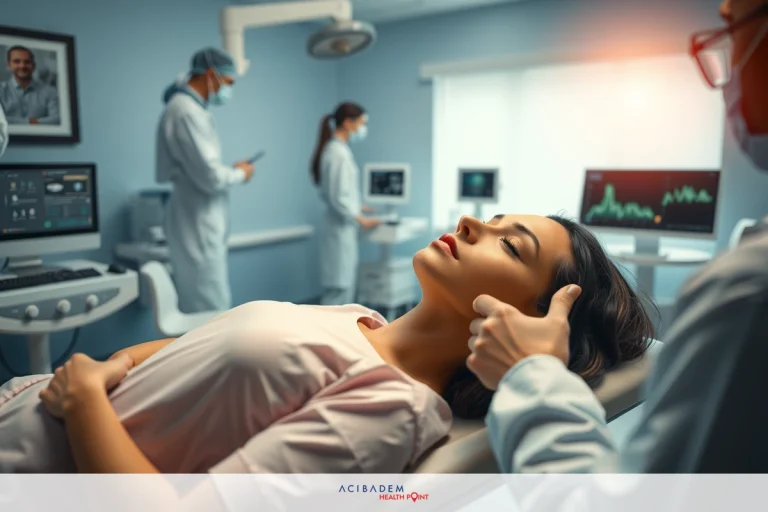What Was Rhinoplasty Surgery Like in the 80’s
What Was Rhinoplasty Surgery Like in the 80’s In the realm of cosmetic enhancements, rhinoplasty surgery emerged as a beacon of transformation during the 1980s. This era witnessed an evolution in techniques and tools utilized for reshaping one’s nose to achieve desired aesthetics. The surge in popularity was noticeable, paving the way toward modern trends.
The contrast between then and now is fascinating, providing insights into how far this field has come. From rudimentary methods to advanced surgical interventions, rhinoplasty’s journey through time mirrors our relentless quest for beauty and perfection. Each decade added another layer to its rich history; the 80s played a pivotal role shaping today’s practices.
Beauty standards prevalent during that period influenced patient expectations from nasal surgeries. It was not merely about correcting physical abnormalities but also achieving a certain look resonating with popular culture at that time. Diving deep into this past epoch unravels intriguing narratives worth exploring.
Advancements in Rhinoplasty Surgery
The 1980s marked a significant period for rhinoplasty surgery, witnessing an array of advancements that greatly improved the procedure. Not only did technology advance but so too did our understanding of aesthetics and anatomy. Surgical techniques developed during this time led to more refined results, reducing recovery times and improving patient satisfaction.
Surgical tools used during the ’80s played a critical role in shaping today’s practices. One such tool was the endoscope, which allowed surgeons to conduct less invasive procedures with greater precision. This revolutionized nasal surgery by providing clear visual access inside the nose while minimizing external incisions. The advent of high-resolution imaging technologies further enhanced surgical planning and outcomes.
The evolution didn’t stop at tools; there were also considerable improvements in anesthesia techniques during this period ensuring safer surgeries with reduced post-operative discomfort. New suturing methods appeared on the scene allowing better control over final outcomes resulting in natural-looking noses that harmoniously blended with other facial features.
In conclusion, these advancements paved way for modern rhinoplasty practice as we know it today – precise, safe and capable of delivering highly satisfying results.
Cosmetic Enhancements with Rhinoplasty
The 1980s saw a surge in the popularity of rhinoplasty surgery, partly due to societal and cultural shifts towards valuing personal aesthetics. The desire for cosmetic enhancements was strongly linked to prevailing beauty standards influenced by pop culture icons of that time. Nose shapes that were considered fashionable then varied from slim, straight profiles to more prominent structures; rhinoplasty offered people an opportunity to align themselves with these trends.
During this period, patients sought various modifications through nasal surgery. Some desired subtle changes like reducing hump size or refining the tip while others opted for dramatic transformations aiming for a complete overhaul of their facial look. Surgeons honed their skills at understanding patient desires and translating those into practical surgical plans, which contributed significantly to the evolution of cosmetic surgery as we know it today.
Another aspect unique to the ’80s was that both men and women showed interest in rhinoplasty procedures equally whereas previously such surgeries were predominantly female-oriented. This heralded a new era where men too felt comfortable seeking aesthetic modifications showcasing changing societal norms around

masculinity and self-care. In conclusion, rhinoplasty played a crucial role in shaping our modern approach towards cosmetic enhancements reflecting people’s desires for individuality combined with conformity to popular beauty standards.
Impact of Rhinoplasty Advancements
The advancements made in rhinoplasty surgery during the 1980s significantly shaped its future. With a better understanding of nasal anatomy and aesthetics, surgeons could now execute precise alterations that were hitherto impossible or risky. The focus shifted from merely ‘fixing’ noses to enhancing facial harmony, leading to more natural and satisfying results.
This decade was also when we saw the birth of patient-centric approaches in cosmetic surgery. Surgeons started to tailor procedures based on individual needs rather than adopting a one-size-fits-all strategy. This change led to an increase in patient satisfaction rates as people felt their unique preferences were respected and catered for.
Furthermore, improved surgical techniques resulted in faster recovery times and fewer complications – two factors that have undeniably contributed towards making rhinoplasty a mainstream option for those seeking aesthetic enhancements today. In essence, the 80s laid down the foundation upon which modern cosmetic surgery has been built – prioritizing safety, personalization, and effective outcome over invasive procedures.
Frequently Asked Questions
How different was rhinoplasty surgery in the 80's compared to now?
Rhinoplasty has evolved considerably since the 1980s. Back then, surgeons relied on traditional techniques and tools which were less precise compared to today's advanced methodologies. The focus also shifted from merely correcting physical abnormalities to enhancing overall facial aesthetics.
What kind of surgical advancements occurred during this period?
The '80s saw several significant advancements including improved anesthesia techniques, development of new suturing methods, and the introduction of endoscopes for better visualization during surgery. These innovations greatly enhanced surgical precision and patient comfort.
Yes, just as fashion trends change with time so do beauty standards. During the '80s certain nose shapes became fashionable influenced by pop culture icons of that era; this guided many people's decisions when opting for nasal surgeries.
How did these advancements impact patient satisfaction?
Advancements made in rhinoplasty procedures led to more refined outcomes - both functionally and aesthetically which naturally increased patient satisfaction rates. Furthermore, personalized treatment plans respecting individual needs further contributed towards a positive patient experience.











